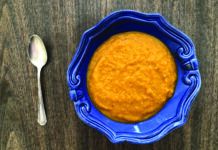A. Jeffrey Blumberg, PhD, director of Tufts HNRCA Antioxidants Research Laboratory, responds: This is an interesting question and reveals the problem with a lack of beverage recommendations in the Dietary Guidelines for Americans. Coffee consumption has been associated in observational studies with a reduced risk of some cardiovascular diseases, age-related cognitive decline and dementia, Parkinsons disease stroke, and type 2 diabetes (of course, each with their inherent study strengths and limitations). There are plausible mechanisms of action by the chlorogenic acids and some of the other phytochemicals present in coffee (including caffeine).
I like the comment by Esther Lopez-Garcia, MD, in an editorial on this topic in the American Journal of Clinical Nutrition that although more research on the health effect of coffee is yet needed to formulate sound recommendations on its consumption, current information suggests that coffee is not as bad as we were told.
The better question this physician might ask is, What are the most healthful beverages that I should recommend to my patients?-rather than trying to identify just one. While (unsweetened) coffee might be included in the list (assuming the patient has no untoward effects from caffeine), so might fruit juices (not fruit drinks), tea, tisanes (herbal teas), and water. Im not enough of an expert on them but it is likely that soy milk and almond milk and related beverages could also be added to this list.



















